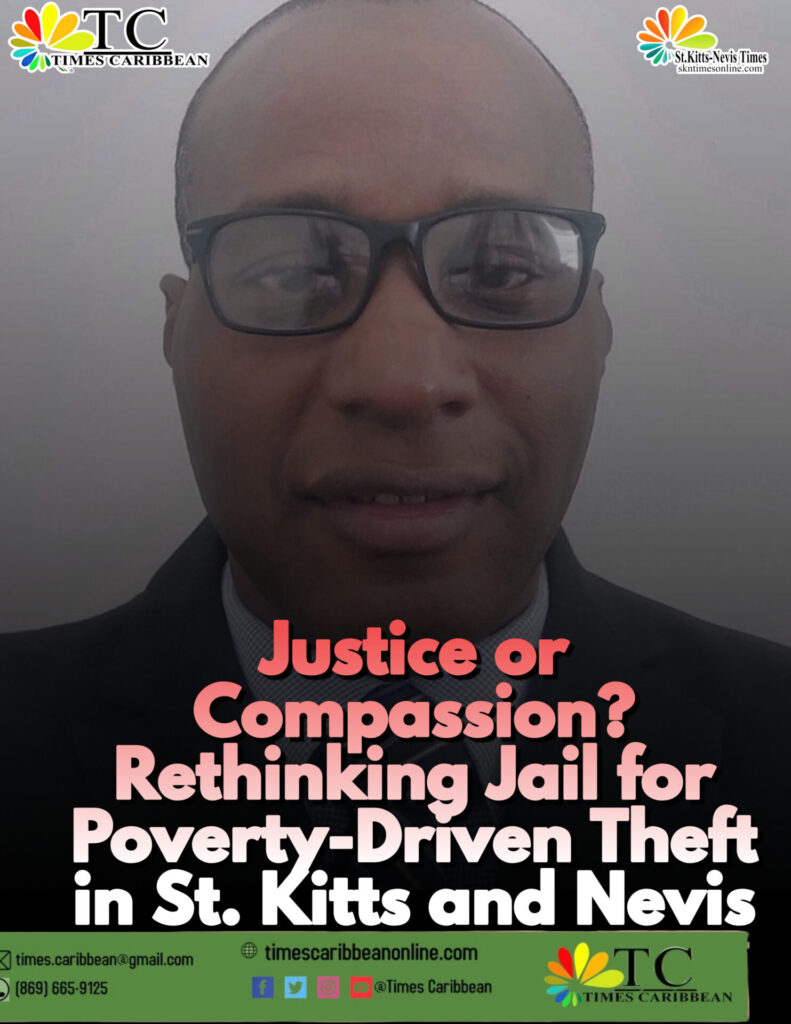Justice or Compassion? Rethinking Jail for Poverty-Driven Theft in St. Kitts and Nevis

by Inspector Carl Greaux, MBA, JP
In St. Kitts and Nevis, theft is legally defined as larceny under the Larceny Act, meaning that anyone who takes another person’s property without consent, with the intention of keeping it, is guilty of a crime and could face up to three years in prison. While this law aims to maintain justice and accountability, I believe that imprisoning everyone convicted of stealing may not always be the best course of action, especially when context is considered. Some individuals who steal do so out of desperation, not malice or greed, and in such cases, alternative approaches might be more beneficial.
Consider, for example, a mother who steals bread and rice to feed her starving children, or a young father who, after losing his job and struggling for a year to find employment, breaks into a store to take school supplies for his children. These cases highlight a critical difference between crimes of need and those driven by personal gain. Imprisoning such individuals may not only further disadvantage them and their families, but it may also overlook deeper social issues at play—such as poverty, unemployment, and lack of social support. Instead, a more compassionate approach is to address the root causes that lead to their actions.
An ethics of care perspective encourages a different approach to punishment—one that treats rather than simply punishes. This could mean sentencing such individuals to programs focused on counseling, skill development, and employment support rather than to prison. By doing so, the justice system provides them with resources that could prevent future incidents and enable them to become more self-sufficient. This is a form of specific deterrence that aims to change behavior rather than merely punishing it. If we invest in equipping people with skills and support, we help break the cycle of poverty-driven crime and support individuals in becoming productive members of society.
This approach has a broader impact, not only benefiting the individual but also society as a whole. Treatment-based sentencing conveys understanding and support rather than rejection and stigmatization. Rather than labeling people as criminals, we acknowledge their humanity and work to address the factors that contributed to their actions.

Leave a comment
You must be logged in to post a comment.